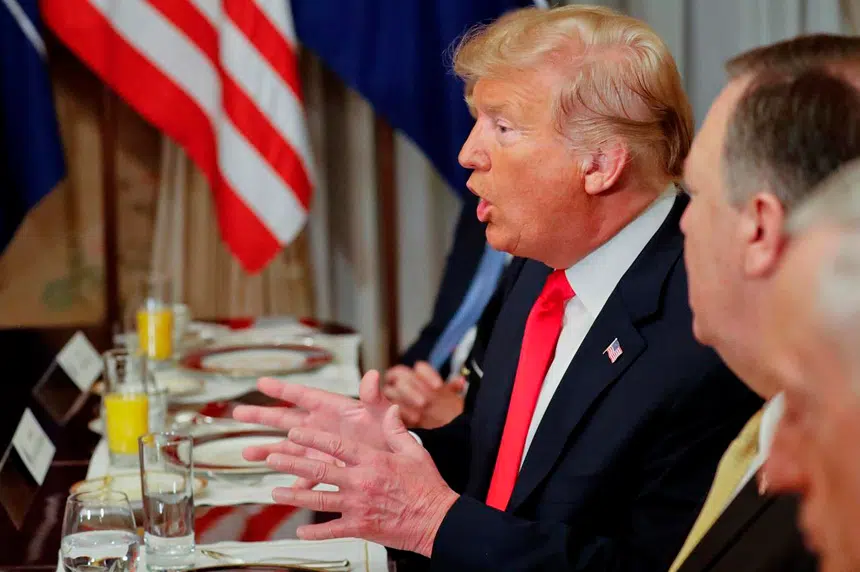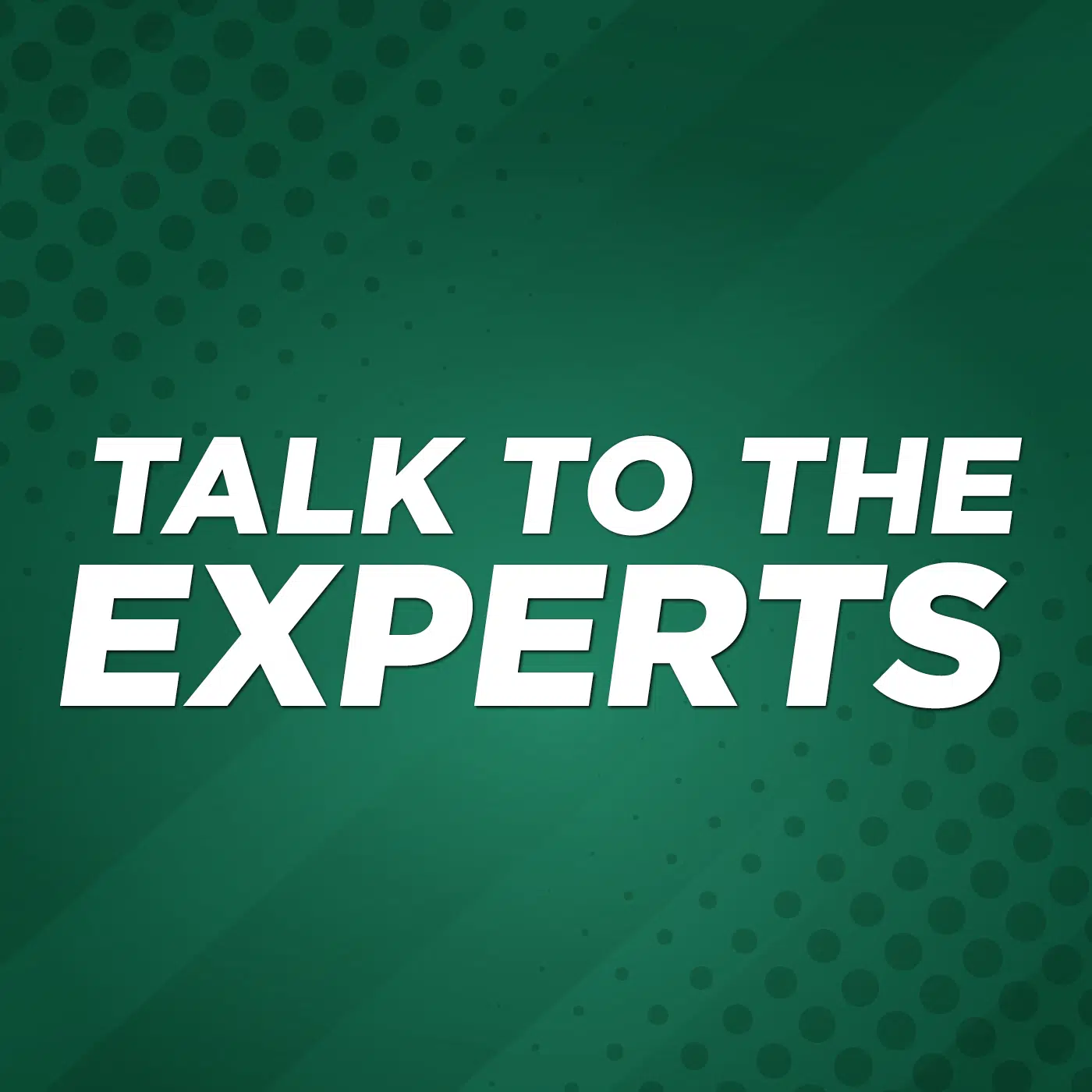BRUSSELS — In a combative start to his NATO visit, President Donald Trump asserted Wednesday that a pipeline project has made Germany “totally controlled” by and “captive to Russia” and blasted allies’ defence spending, opening what was expected to be a fraught summit with a list of grievances involving American allies.
Trump, in a testy exchange with NATO Secretary-General Jens Stoltenberg, took issue with the U.S. protecting Germany as it strikes deals with Russia.
“I have to say, I think it’s very sad when Germany makes a massive oil and gas deal with Russia where we’re supposed to be guarding against Russia,” Trump said at breakfast with Stoltenberg. “We’re supposed to protect you against Russia but they’re paying billions of dollars to Russia and I think that’s very inappropriate.”
The president appeared to be referring to the Nord Stream 2 pipeline that would bring gas from Russia to Germany’s northeastern Baltic coast, bypassing Eastern European nations like Poland and Ukraine and doubling the amount of gas Russia can send directly to Germany. The vast undersea pipeline is opposed by the U.S. and some other EU members, who warn it could give Moscow greater leverage over Western Europe.
Trump said “Germany, as far as I’m concerned, is captive to Russia” and urged NATO to look into the issue.
Stoltenberg pushed back, stressing that NATO members have been able to work together despite their differences. “I think that two world wars and the Cold War taught us that we are stronger together than apart,” he told the president, trying to calm tensions.
Trump later tweeted a video of the exchange.
German Chancellor Angela Merkel also pushed back as she arrived at NATO headquarters for the summit shortly before the president, insisting that Germany makes its own decisions.
“I’ve experienced myself a part of Germany controlled by the Soviet Union and I’m very happy today that we are united in freedom as the Federal Republic of Germany and can thus say that we can determine our own policies and make our own decisions and that’s very good,” she said.
The criticism was an unusual one coming from Trump, who has appeared eager to cozy up to Putin and who has dismissed the U.S. intelligence community’s assessment that Russia tried to undermine Western democracy by meddling in the 2016 U.S. presidential election to help Trump win. During the campaign, Trump often resorted to the tactic of falsely accusing his opponents of things he had been criticized for doing.
White House press secretary Sarah Huckabee Sanders announced hours after the tit-for-tat over Germany that Trump would meet later Wednesday with Merkel, as well as with French President Emmanuel Macron. Journalists will not be allowed to cover either meeting, she said.
The dramatic exchange set the tone for what was already expected to be a tense day of meetings with leaders of the military alliance. Trump is expected to continue hammering jittery NATO allies about their military spending during the summit, which comes amid increasingly frayed relations between the “America first” president and the United States’ closest traditional allies.
“The United States is paying far too much and other countries are not paying enough, especially some. So we’re going to have a meeting on that,” Trump said as he arrived at the breakfast, describing the situation as “disproportionate and not fair to the taxpayers of the United States and we’re going to make it fair.”
“They will spend more,” he later predicted. “I have great confidence they’ll be spending more.”
Trump has been pushing NATO members to reach their agreed-to target of spending 2 per cent of their gross domestic products on national defence by 2024 and has accused those who don’t of freeloading off the U.S.
“Many countries in NATO, which we are expected to defend, are not only short of their current commitment of 2% (which is low), but are also delinquent for many years in payments that have not been made,” he tweeted Tuesday en route to Europe, asking: “Will they reimburse the U.S.?”
That’s not how the spending works. Two per cent represents the amount each country aims to spend on its own defence, not some kind of direct payment to NATO or the U.S.
NATO estimates that 15 members, or just over half, will meet the benchmark by 2024 based on current trends.
During his campaign, Trump called NATO “obsolete” and suggested the U.S. might not come to the defence of members if they found themselves under attack — a shift that would represent a fundamental realignment of the modern world order. He also called Brussels a “hell hole” and “a mess.” Trump has moderated his language somewhat since taking office, but has continued to dwell on the issue, even as many NATO members have agreed to up their spending.
Stoltenberg, for his part, credited Trump for spurring NATO nations to spend more on defence, noting that the Europeans and Canada are projected to spend around $266 billion more by 2024.
“We all agree that we have to do more,” he said, describing last year as marking the biggest increase in defence spending across Europe and Canada in a generation.
Trump interjected, asking Stoltenberg why he thought that had happened.
“It’s also because of your leadership, because your clear message,” Stoltenberg responded.
Trump took credit for the spending, telling the NATO chief that “because of me they’ve raised about $40 billion over the last year. So I think the secretary-general likes Trump. He may be the only one, but that’s OK with me.”
Trump, who arrived in Brussels late Tuesday, was set to participate in a welcome ceremony, a meeting of the North Atlantic Council and a working dinner with some of the same leaders he berated over trade during his last world leaders’ summit in Canada last month.
Brussels is the first leg of a weeklong European tour that will include stops in London and Scotland, as well as a highly anticipated meeting next week with Russia’s Vladimir Putin.
Trump predicted as he departed Washington that the “easiest” leg of the journey would be the sit-down with Putin — a comment that did little to reassure allies fretting over his potential embrace of a Russian leader they regard as troublesome.
On the eve of the NATO summit, European Council President Donald Tusk pushed back against Trump’s constant criticism of European allies and urged him to remember who his friends are when he meets with Putin in Helsinki.
“Dear America, appreciate your allies, after all you don’t have all that many,” he said.
__
Associated Press writers Ken Thomas, Darlene Superville and Zeke Miller in Washington and Maria Danilova in Moscow contributed to this report.
__
Follow Colvin and Lemire on Twitter at https://twitter.com/colvinj and https://twitter.com/JonLemire
Jonathan Lemire And Jill Colvin, The Associated Press







